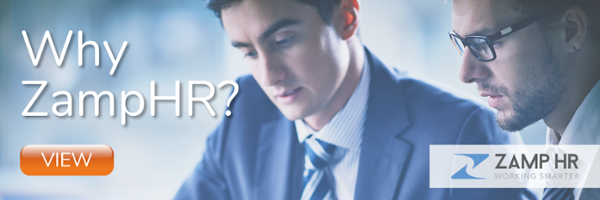One of the most tedious tasks you have to do is processing payroll and filing payroll taxes. This has to be done right, or you face substantial compliance fines and increased turnover.
Even worse, you take total liability for any errors made, and just two payroll errors lead nearly half of employees to consider switching jobs.
Beyond basic payroll responsibilities, you have to monitor changes in employment law. For example, most years see some changes to the Fair Labor Standards Act.
It's no wonder that many companies outsource to a dedicated payroll provider, but this only solves part of the problem.
A dedicated provider can only process payroll, not file taxes for you.
You need to partner with a professional employer organization (PEO) to get the whole solution.
What is a PEO?
A professional employer organization is a comprehensive HR outsourcing company. When you partner with a PEO, you gain the benefits of "co-employment."
Co-employment means that the PEO becomes the "employer of record" for your employees. While you retain complete control over hiring, firing, and promotions, the PEO can process and file payroll taxes and add your employees to their benefits and workers' compensation plans.
A PEO provides a much more comprehensive service than other solutions. These, for the most part, only save you time.
Meanwhile, a best-in-class PEO will give you better benefits for a lower cost, lower workers' compensation costs, and a lot of guidance and help with your HR issues.
A PEO is the only HR outsourcing solution that files payroll taxes for you, takes on liability for errors, and monitors all HR-related compliance changes.
What's the Difference Between a PEO and Other HR Outsourcing Solutions?
There are two other major outsourcing solutions. One is a dedicated payroll processor, and the other is an administrative services organization (ASO) solution.
But what's the difference?
PEO vs. Dedicated Payroll Provider
A dedicated payroll provider only processes payroll. They tell you how much to pay your employees, how much to pay in taxes, etc. This saves a lot of time, but that is all they save. They also aren't able to file your payroll taxes, so you are responsible for any missed deadlines or errors.
Unlike a payroll processor, the PEO will do all of payroll: paying your employees, filing taxes, and paying healthcare premiums.
PEO vs. ASO
An administrative service organization is more comprehensive than a payroll processor but not as complete as a PEO.
ASOs can handle various HR-related tasks, including benefits administration, payroll processing, risk management, etc. They are sometimes called "administrative services only."
However, they are unable to file payroll taxes for you.
With a PEO, you can count on the PEO to handle all routine HR functions. If there are payroll errors, they are the responsibility of the PEO.
This gives more peace of mind without a loss of control.
What Else Do PEOs Handle?
Payroll is a huge chunk of the tedious administrative tasks required for human resources, but it is far from the only thing that can be outsourced. In fact, a PEO can take on a wide variety of administrative burdens. These include:
- Benefits administration.
- OSHA compliance audits and other safety-related issues, including helping you with safety training.
- Workers' compensation insurance.
- Unemployment claims management.
- Some aspects of hiring including screening resumes and conducting job interviews.
- HR Administrative Duties
PEOs can also give you access to their wealth of experience from working with other clients.
How Much Does a PEO Cost Relative to Dedicated Payroll Processors?
A PEO's cost can vary greatly, primarily affected by its size. However, a local PEO will not actually cost any more than a dedicated payroll processor. You will also get much more for your money, including substantial cost savings on benefits that result in a high return on investment (ROI) compared to other outsourcing solutions.
In fact, the average ROI of partnering with a PEO is 27.2%.
What If I Have Employees in Multiple States?
The rise of remote work has made it much more common for companies, even smaller ones, to have employees in multiple states. Multi-state payroll processing can be a nightmare, and HR compliance can be even worse if you have employees subject to, for example, different overtime rules.
Best-in-class PEOs can handle this efficiently as they have full-time people who are specially trained to navigate the shifting landscape of multi-state employment.
Partnering with a PEO is most small companies' best HR outsourcing answer. Not only will you no longer have to process and file payroll taxes, but you will also be able to hand off other significant administrative burdens and risk management, all for no more than the cost of a payroll processor.



